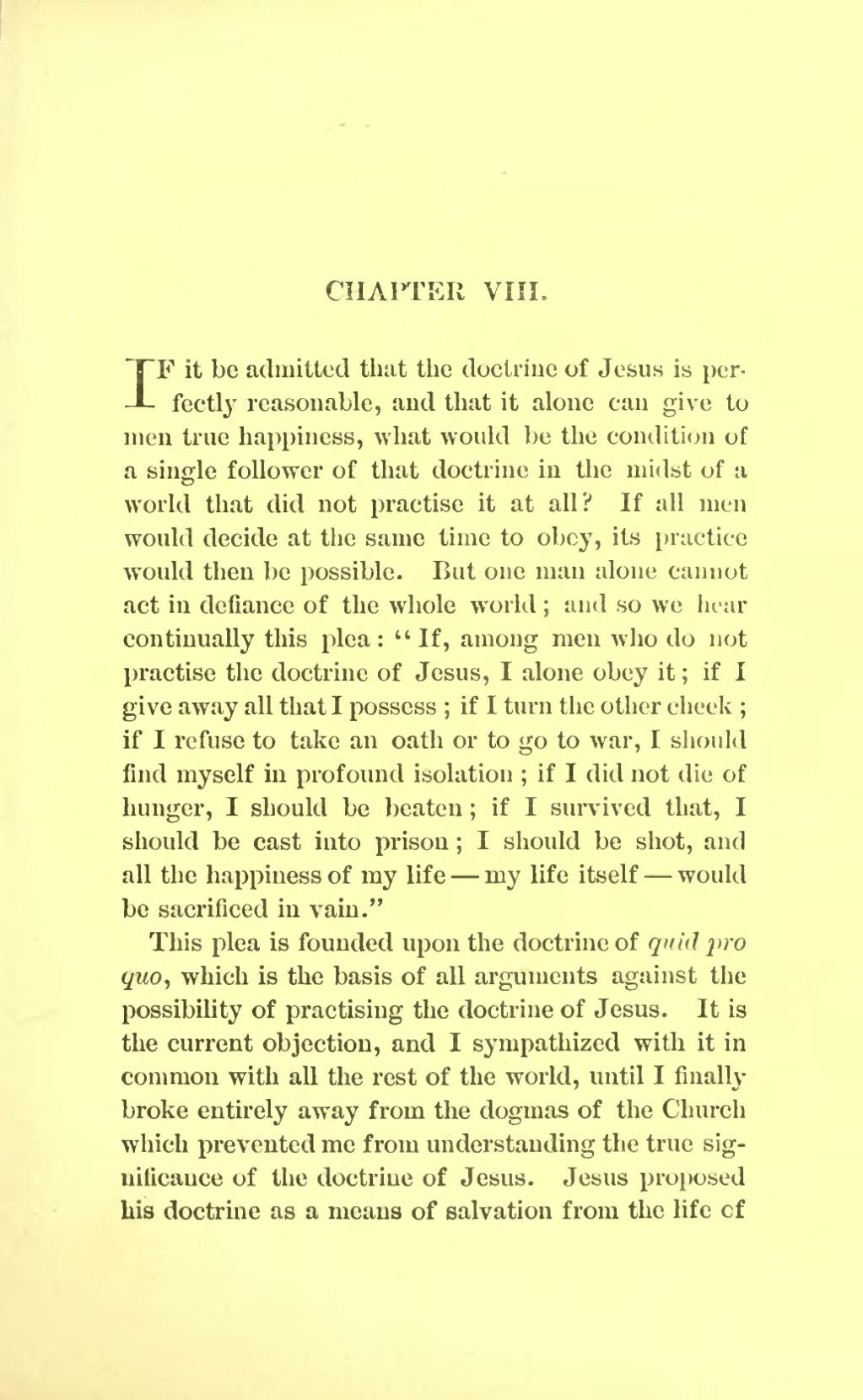CHAPTER VIII
IF it be admitted that the doctrine of Jesus is perfectly reasonable, and that it alone can give to men true happiness, what would be the condition of a single follower of that doctrine in the midst of a world that did not practise it at all? If all men would decide at the same time to obey, its practice would then be possible. But one man alone cannot act in defiance of the whole world; and so we hear continually this plea: “If, among men who do not practise the doctrine of Jesus, I alone obey it; if I give away all that I possess; if I turn the other cheek; if I refuse to take an oath or to go to war, I should find myself in profound isolation; if I did not die of hunger, I should be beaten; if I survived that, I should be cast into prison; I should be shot, and all the happiness of my life—my life itself—would be sacrificed in vain.”
This plea is founded upon the doctrine of quid pro quo, which is the basis of all arguments against the possibility of practising the doctrine of Jesus. It is the current objection, and I sympathized with it in common with all the rest of the world, until I finally broke entirely away from the dogmas of the Church which prevented me from understanding the true significance of the doctrine of Jesus. Jesus proposed his doctrine as a means of salvation from the life of
